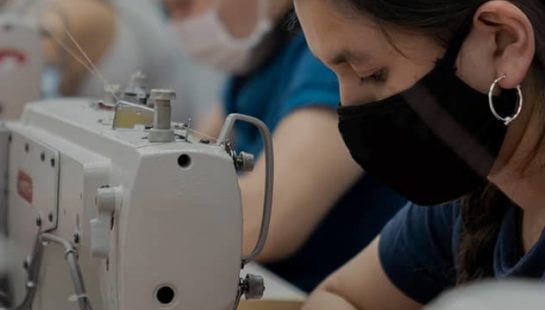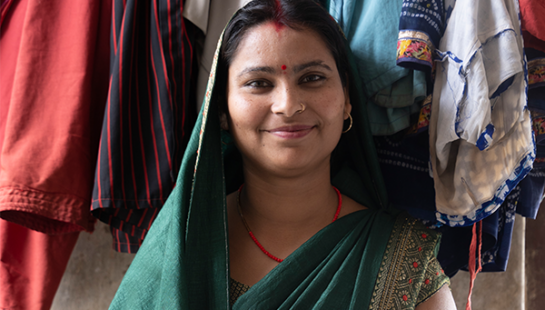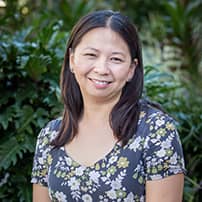It was my first trip overseas in many years. And the first, ever, where I had been so brutally confronted with poverty.
The smells, sights, and sounds were, somehow, more than foreign to me . . . they were an awakening. The harsh reality of a world that I had always known existed, but that I had never experienced for myself.
Yet, somehow, in the middle of all that darkness, I was gifted the beauty of hope.
I had been in the country less than two days when I met Phillip, a farmer and loving father
and husband. And sitting on a plastic garden chair, taking in the extraordinary but unforgiving country that is remote, rural Kenya, I heard his story.
‘My parents were very poor and life was difficult,’ Phillip says, talking of his childhood. ‘Illness was common due to poor diet and bad hygiene. We could take days without food, and going to school was a struggle.’
Due to his family’s poverty, Phillip was unable to finish his education. And, as a primary school dropout, his life’s course seemed set.
‘The only job I could get was a casual job at construction sites,’ Phillip explains,
But they are hard to get and very low paying.
Like his father before him, Phillip grew up to be poor. You see, poverty is generational in this part of the world… and it’s very hard to break free. So, when Phillip became a dad himself, he felt the burden of his poverty more than ever.
‘I would like my children to get the best education which I never had the opportunity to have, so they can be financially stable,’ he earnestly says.
But at the time of his son’s birth, Phillip’s hopes for little Francis were made impossible by the hard reality of his family’s poverty. And history, again, looked likely to repeat itself.
‘I felt having failed as an African man who should provide for the family,’ says Phillip, sadly.
But his story doesn’t end there!
In 2013, Phillip made the 300km journey home from Garissa, where he had been living in hopes of finding work.
‘When I arrived,’ he says, ‘I found an organisation had started constructing a project with the community—a sand dam at a nearby river!’
Sand dams are simple structures, built across seasonal, sandy rivers. They are designed to ‘catch’ water-laden sand during the rainy season, so families can have a stable source of clean water all year round. (Later that day, I watched on in amazement as Phillip’s wife, Mary, collected water by digging in the seemingly dry riverbed.) It is an incredibly smart and cost-effective way to give whole communities a nearby water source.
With no other jobs available to him, Phillip decided to put his skills in construction to good use and join the project as a volunteer. It was a decision that would change life for him, and his family, forever.
Through his involvement in the project, Phillip connected with the organisation helping his community to build the sand dam, our Christian partner in the field, ADS Eastern. Both he and Mary joined savings groups and took loans to help grow their family income. Phillip was even nominated by his neighbours to receive training to become a sand dam artisan.
Today Phillip is a fully qualified artisan, which means he receives payment for all the jobs that he works on . . . but what is even more impressive is that, through the sand dam projects, he has helped give more than 800 people in drought-prone Kenya a reliable source of water. What an incredible multiplication of impact!
‘I feel very happy,’ he says. ‘I am honoured when I see people fetching water from the sand dams.’
But best of all, Phillip now has the income he needs to live at home with his family and make sure his dreams for his children are realised.
‘I do walk chest forward,’ he says, proudly, ‘knowing that I can provide at least all the needs of my family as a true African man.’
When you give to Matching Grant, you help make life-changing projects like this possible. Thank you for helping fathers around the world, just like Phillip, give their children hope for the future. Thank you for helping to break generational poverty.



 Baptist World Aid
Baptist World Aid

 Sophia Russell,
Sophia Russell,